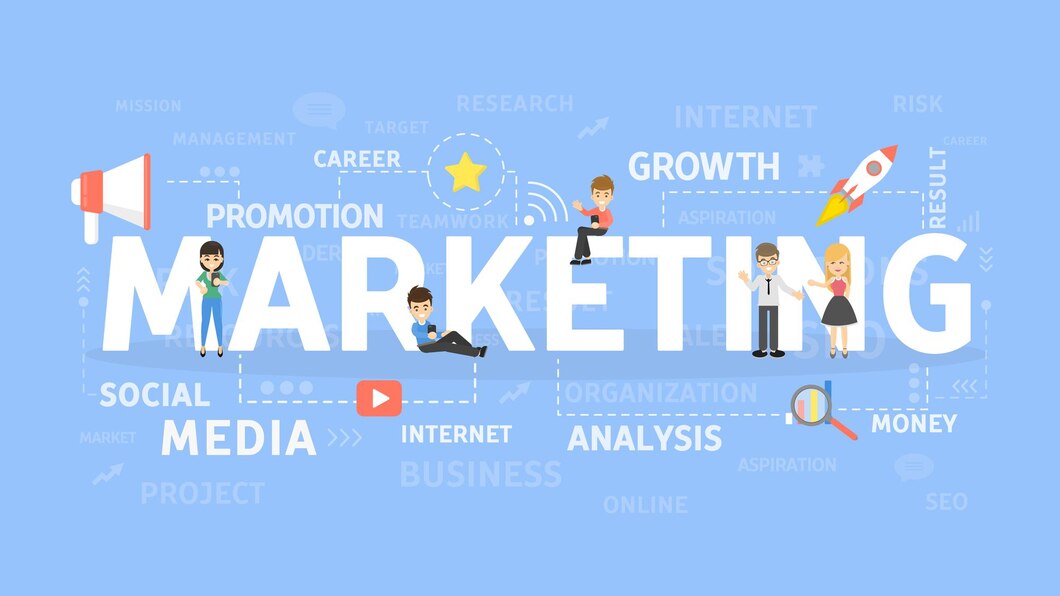Digital Marketing Trends 2024

Staying ahead of the curve in the fast-paced world of digital marketing is a necessity for professionals looking to build a strong online presence and engage with their audiences effectively. In 2024, the landscape is teeming with innovations that are reshaping the way we approach our digital strategies. Whether you’re a seasoned marketer or a business owner navigating the intricacies of online promotion, these trends are essential to consider.
This year’s trends are not just about adopting the latest tool or app, but about crafting experiences that resonate with your audience and drive tangible business results. From immersive tech to the evolution of social media, the digital marketing sphere is more diverse and dynamic than ever. Here are the top 10 trends that are set to dominate and redefine your digital playbook.
Interactive Content Builds Bridges
- The advent of interactive content marketing has shifted the focus from passive consumption to active participation. In 2024, expect to see a surge in interactive elements such as quizzes, polls, contests, and augmented reality (AR) experiences. Brands can now create interactive advertisements that allow users to engage with products or services directly, leading to higher engagement rates and a more memorable brand experience.
Read Moore: Digital Marketing For Home Services
Personalization: The New Frontier of Connection
- In the digital age, personalization has become the standard rather than a novelty. Deeply understanding your audience and tailoring content, products, and services to their specific needs is paramount. Intelligent data analytics and machine learning tools are now more accessible, enabling businesses to create personalized experiences across all digital touchpoints.
Voice and Visual Search Revolutionize SEO
- Voice search and visual search are changing the SEO game. With more consumers using devices like Amazon Echo and Google Home, optimizing for voice-activated queries is crucial. Visual search, which allows users to search the web using images, is also on the rise, necessitating a different approach to SEO that incorporates both traditional text-based search and these emerging formats.
Social Commerce Takes Center Stage
- E-commerce and social media are no longer two separate entities, as the rise of social commerce continues to blur the lines. With features like Instagram Shopping and Facebook Marketplace, consumers can now discover and purchase products without leaving their favorite social platform. For businesses, this trend represents an unprecedented opportunity to capitalize on impulse purchasing and streamline the buyer’s journey.
Influencer Marketing Matures
- Influencer marketing is reaching a level of sophistication and strategy that demands a more discerning eye from both brands and consumers. Micro and nano-influencers with smaller but more engaged followings are gaining traction, and authenticity is paramount. Additionally, long-term partnerships with influencers are becoming more common, fostering a sense of trust and a deeper connection with the brand.
Video Content Continues to Surge
- Video content is king, and its reign isn’t set to end anytime soon. With the continued growth of platforms like TikTok and the integration of video across all social media channels, marketers must invest in quality video production that tells a story and resonates with viewers. From short-form to live streams and webinars, there’s a video format for every stage of the customer journey.
Sustainability and Social Responsibility Influence Purchasing Decisions
- Consumers, particularly younger generations, are increasingly making purchasing decisions based on a company’s environmental impact and social responsibility. Digital marketing strategies that highlight a brand’s commitment to sustainability can not only build goodwill but also attract a loyal customer base. Content that showcases sustainable practices and corporate social responsibility initiatives can significantly influence consumer perceptions and purchasing behavior.
AI and Automation Redefine Marketing Efficiencies
- Artificial intelligence (AI) and automation tools are streamlining marketing processes and providing deeper insights into customer behavior. From chatbots for customer service to AI-driven content curation and smart email segmentation, these technologies are enhancing efficiency and personalization at scale. Marketers who effectively harness AI and automation will be better positioned to deliver the right message to the right person at the right time.
Read Moore: Franchise Digital Marketing
Data Privacy Takes Center Stage
- Data privacy regulations and consumer concerns are forcing marketers to take a more cautious approach to data collection and management. Strategies that focus on transparency and consent, such as cookie-less tracking, are gaining importance. Marketers must be proactive in ensuring compliance and building trust with their audience through responsible data practices.

The Evolution of Marketing Technologies
- The marketing technology (MarTech) stack is evolving at a rapid pace, with new tools and platforms emerging to address every aspect of the customer lifecycle. From customer relationship management (CRM) systems that integrate seamlessly with social media to AI-driven analytics platforms that provide real-time insights, the choice of technology has never been broader. Staying informed and agile in adopting these technologies can be a significant competitive advantage.
By keeping a finger on the pulse of these trends, digital marketers can craft strategies that are not only relevant but also forward-thinking and impactful. The digital marketing landscape in 2023 is rich with opportunities to engage with customers in more meaningful ways, drive business growth, and differentiate your brand from the competition. It’s time to innovate, experiment, and set the standard for the year ahead.